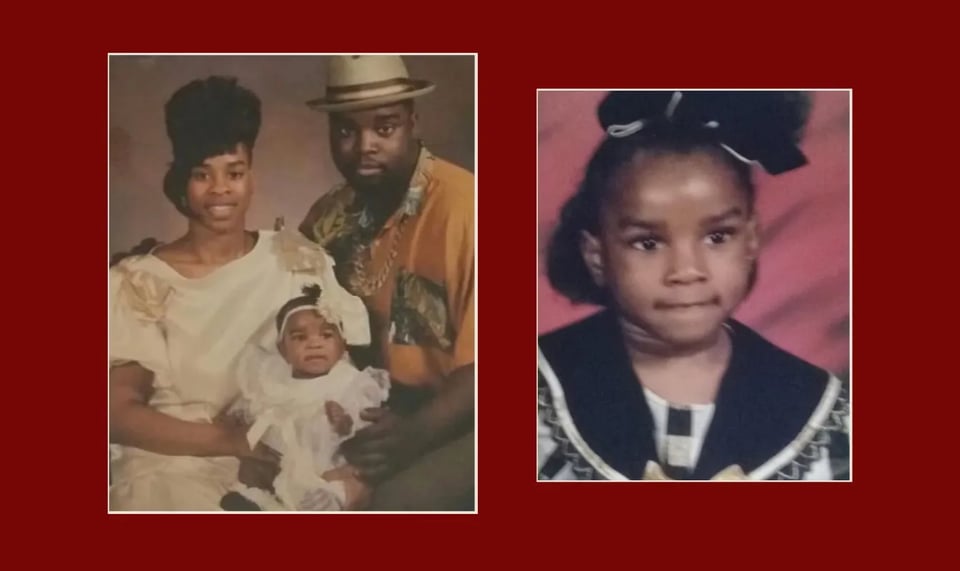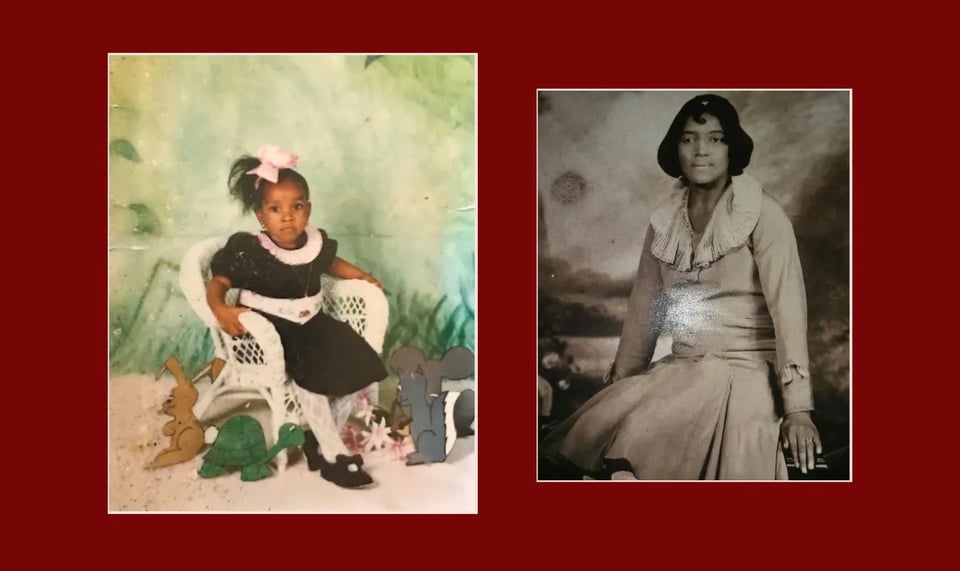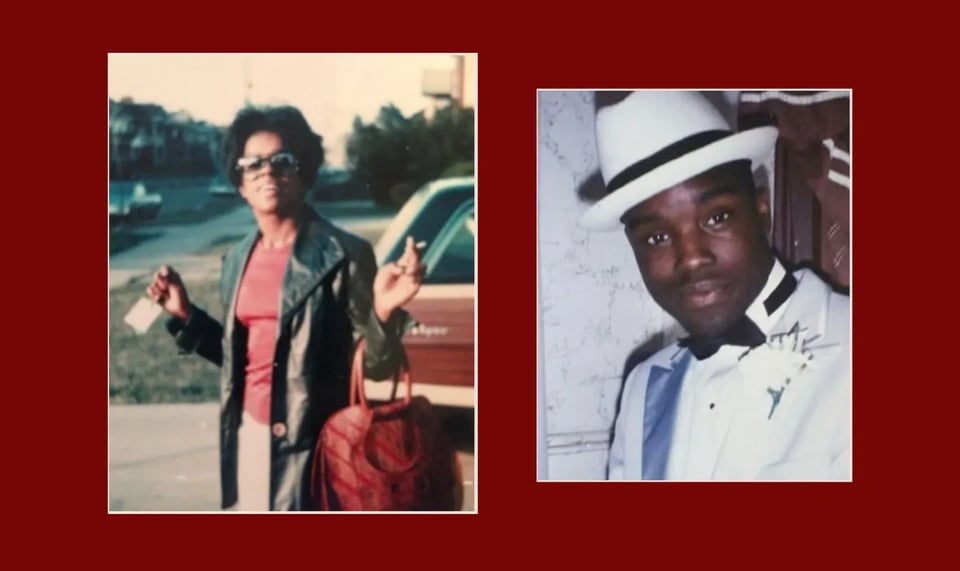Sunday, February 11, 2024. 🏈 Annette’s News Roundup.
I think the Roundup makes people feel not so alone.
To read an article excerpted in this Roundup, click on its blue title. Each “blue” article is hyperlinked so you can read the whole article.
Please feel free to share.
Invite at least one other person to subscribe today! https://buttondown.email/AnnettesNewsRoundup
___________________________________________
Joe is always busy.
Biden order attaches human rights conditions to US military aid, easing Democratic rift over Israel.
WASHINGTON (AP) — A new directive by President Joe Biden appeared to ease a split among Democrats over his military support for Israel’s war in Gaza, with lawmakers on Friday praising the order authorizing a swift cutoff of military aid to countries that violate international protections of civilians.
For Biden, the commitment to conditioning U.S. military aid for Israel and other allies and strategic partners will help him shore up support among center-left Senate Democrats for his proposed $95 billion supplemental assistance package, which is aimed primarily at military aid for Ukraine in its war with Russia and for Israel in its war against Hamas in Gaza.
Democratic senators on Friday called Biden’s directive — meant to bring breadth, oversight, deadlines and teeth to efforts to ensure foreign governments don’t use U.S. military aid against civilians — historic.
“This is a sea-change in terms of how you approach U.S. military aid and its impact on civilians,” Massachusetts Sen. Elizabeth Warren said. She spoke at a Capitol news conference with other Democrats who’d negotiated with the White House for two months on the matter, in an effort led by Maryland Sen. Chris Van Hollen.
Human rights advocates said the challenge for the new directive would be the same faced by all previous efforts to withhold U.S. weapons and funding from human rights abusers — whether administrations will actually enforce the human rights conditions against strategically important allies and partners.
“The issue was never knowledge” of U.S. military aid being used in violation of international law “so much as enforcement,” said Kenneth Roth, a former head of Human Rights Watch and a visiting professor at Princeton School of Public and International Affairs.
The new order comes in what’s officially known as a presidential memorandum. Those have the force of law, although succeeding presidents can overturn them.
Biden’s order has immediate effect. It gives Secretary of State Antony Blinken 45 days to obtain “credible and reliable written assurances” from foreign recipients of U.S. military aid that are in active conflicts, which includes Israel and Ukraine, that they are using U.S. military assistance in compliance with international humanitarian law and human rights law and other standards.
Foreign governments that fail to provide those assurances on time would have their military aid paused. Administrations also have the option of suspending U.S. military assistance if they deem a foreign government isn’t really complying with humanitarian law and protections, despite claiming it is.
Other requirements include regular reports from the administration on compliance going forward. That includes countries not actively fighting a war.
The supply of air defense systems and some other defensive gear is exempted. While supporters say the stringent language of the order will limit the ability of presidential administrations to evade the spirit of the measure, the order does allow administrations to waive the requirements in “rare and extraordinary circumstances.”
The Biden administration has frustrated some Senate Democrats during Israel’s war in Gaza by declaring a national security emergency to rush military aid to Israel, skirting the usual process of congressional notification.
The administration also has quietly lobbied against moves by independent Sen. Bernie Sanders and others to attach conditions to military aid to Israel in the supplemental legislation, with the idea of pressuring Israel to do more to spare Palestinian civilians.
Nearly 28,000 Palestinians, two-thirds of them women and children, have been killed since Israel launched its military campaign in Gaza. That followed the Oct. 7 attacks by Hamas that killed about 1,200 people in Israel.
Israeli Prime Minister Benjamin Netanyahu’s government has not appeared to have substantially backed off on airstrikes daily claiming civilian lives despite the pressure from the United States, its most important ally and military supporter. The U.S. is also frustrated at Israel’s restrictions on humanitarian aid deliveries into Gaza. Biden this week said some of his strongest criticism of Israel’s conduct of the war, calling it “over the top.”
White House press secretary Karine Jean-Pierre underscored Friday that the administration is “not imposing new standards for military aid” with the memorandum. She said it was done in the interest of improving transparency.
She added that Israeli officials were briefed on the memorandum before its release.
“They reiterated their willingness to provide these types of assurances,” Jean-Pierre said.
The U.S. already has laws — including the Foreign Assistance Act and the Leahy Law — meant to bar security assistance to governments that are serial human rights abusers. Those “are honored in the breach,” Roth, the human rights expert, said.
“If the administration is so indifferent to existing law, it’s not clear what difference a new set of reports will make,” Roth said.
The Democratic senators said Friday they would continue working to strengthen the new system laid out in the order.
That includes seeking funding for the additional government oversight and codifying it into legislation so it’s harder for future presidents to trash.
“This is a very big deal,” Van Hollen said. “And it will give President Biden and the United States more tools and more leverage ... to ensure that U.S. military assistance complies with American values and American” standards. (Associated Press)
Good news for folks as we start the weekend. The stock market going strong is a sign of confidence in America’s economy. https://t.co/3nnSiVWOYP
— President Biden (@POTUS) February 10, 2024
S&P 500 closes above 5,000 for first time ever, notches fifth straight winning week. https://t.co/TTJUFNmPLN
— NBC News (@NBCNews) February 10, 2024
For centuries, families around the world have gathered to celebrate the first moon of the new year.
— President Biden (@POTUS) February 10, 2024
It’s a time of renewal and reflection, hope and possibilities, and good over evil.
From the Biden family to yours, we wish you a happy, healthy, and prosperous New Year. pic.twitter.com/TwfKXtRzv3
SATURDAY IN LOS ANGELES
— GeorgiaPeach OG Biden Babe 🥁🇺🇸🇺🇦 (@ChrisFromGA68) February 3, 2024
2pm @POTUS & FLOTUS are wheels up to Los Angeles, CA for the weekend pic.twitter.com/T9l0EP4Mdf
___________________________________________
Jill is always busy.
Linda Wharton, consultant to the Roundup, received this yesterday.

Linda,
I’ve heard from so many of you asking about the Special Counsel's report this week. Thank you for your love and support.
You probably know the basics: Joe cooperated fully with a Special Counsel’s investigation and they found he did nothing wrong -- no criminal charges were warranted. I thought Heather Cox Richardson wrote about it eloquently here.
The reason I’m writing is because of what else was in the report: Inaccurate and personal political attacks about Joe. Rather than just saying the case was closed, as they have for others, the Special Counsel claimed that Joe “couldn’t remember the year his son died.” Believe me, like anyone who has lost a child, Beau and his death never leave him.
I hope you can imagine how it felt to read that attack -- not just as Joe’s wife, but as Beau’s mother.
I don’t know what this Special Counsel was trying to achieve. We should give everyone grace, and I can’t imagine someone would try to use our son’s death to score political points. If you’ve experienced a loss like that, you know that you don’t measure it in years -- you measure it in grief.
May 30th is a day forever etched on our hearts. It shattered me, it shattered our family.
So many of you know that feeling after you lose a loved one, where you feel like you can’t get off the floor. What helped me, and what helped Joe, was to find purpose. That’s what keeps Joe going, serving you and the country we love.
Joe is 81, that’s true, but he’s 81 doing more in an hour than most people do in a day. Joe has wisdom, empathy, and vision. He has delivered on so many of his promises as President precisely because he’s learned a lot in those 81 years. His age, with his experience and expertise, is an incredible asset and he proves it every day.
Look at all he’s accomplished: He brought our country back from COVID. He brought our economy back from the brink. He created 14 million jobs. Gas prices are down. Inflation is down. Energy costs are down. He got bipartisan legislation passed -- even in the midst of this hyper-partisan environment. The media may not give him credit, but I’m thankful you realize all he’s done for this country.
Joe is the most resilient person I’ve ever known. When he gets knocked down, he gets back up and gets back to work. That’s what he’s doing.
It is just so meaningful to both of us to have you behind us. Your support is what keeps this campaign moving forward.
At some point in our lives, we’ll all experience grief or loss. We’ll go through challenging moments and twists and turns. But we find joy together, we persevere together, and ultimately we’ll prevail together.
Thank you for being part of our campaign.
Love,
Jill
___________________________________________
Andrew Weissman and Ryan Goodman read the Hur Report for us.

Weissman, pictured above, is also an MSNBC legal commentator.
About the Author(s)
Andrew Weissmann
Andrew Weissmann (@AWeissmann_) is Professor of Practice and Distinguished Senior Fellow at the Reiss Center on Law and Security and at the Center on the Administration of Criminal Law at NYU School of Law. He served as a lead prosecutor in Robert S. Mueller’s Special Counsel’s Office (2017-2019), as Chief of the Fraud Section in the Department of Justice (2015-2019), and as General Counsel for the Federal Bureau of Investigation (2011-2013).
Ryan Goodman
Ryan Goodman (@rgoodlaw) is co-editor-in-chief of Just Security and Anne and Joel Ehrenkranz Professor of Law at New York University School of Law.
The article Weissman and Goodman wrote is very important, but too long for me to post in this Roundup. But it is not too long for you to read in no more than 10 minutes, so click on the blue link 👇 to read it in its entirety. You will be glad you did.
The Real “Robert Hur Report” (Versus What You Read in the News).
The Special Counsel Robert Hur report has been grossly mischaracterized by the press. The report finds that the evidence of a knowing, willful violation of the criminal laws is wanting. Indeed, the report, on page 6, notes that there are “innocent explanations” that Hur “cannot refute.” That is but one of myriad examples we outline in great detail below of the report repeatedly finding a lack of proof. And those findings mean, in DOJ-speak, there is simply no case. Unrefuted innocent explanations is the sine qua non of not just a case that does not meet the standard for criminal prosecution – it means innocence. Or as former Attorney General Bill Barr and his former boss would have put it, a total vindication (but here, for real).
But even without the prompting of a misleading “summary” by Barr, the press has gotten the lede wrong. This may be because of a poorly worded (we’re being charitable) thesis sentence on page 1 of Hur’s executive summary. Hur writes at the outset: “Our investigation uncovered evidence that President Biden willfully retained and disclosed classified materials after his vice presidency when he was a private citizen.” You have to wait for the later statements that what the report actually says is there is insufficient evidence of criminality, innocent explanations for the conduct, and affirmative evidence that Biden did not willfully withhold classified documents. Put another way, that same sentence about “our investigation uncovered evidence” could equally apply to Mike Pence, who had classified documents at his home, which is similarly some “evidence” of a crime, but also plainly insufficient to remotely establish criminality.
The press incorrectly and repeatedly blast out that the Hur report found Biden willfully retained classified documents, in other words, that Biden committed a felony; with some in the news media further trumpeting that the Special Counsel decided only as a matter of discretion not to recommend charges.
To clarify thinking about this topic, let’s consider another way Hur could have represented his actual findings on page 1 of his executive summary:
“We have concluded that there is not a prosecutable case against Biden. Although there was a basis to open the investigation based on the fact that classified documents were found in Biden’s homes and office space, that is insufficient to establish a crime was committed. The illegal retention or dissemination of national defense information requires that he knew of the existence of such documents and that he knew they contained national defense information. It is not a crime without those additional elements. Our investigation, after a thorough year-long review, concludes that there is an absence of such necessary proof. Indeed, we have found a number of innocent explanations as to which we found no contrary evidence to refute them and found affirmative evidence in support of them.”
Below we first identify the relevant contents of the Hur report. We then provide a sampling of the erroneous press pronouncements.
I. What the Hur Report Actually Found
We let the Hur report speak for itself. For ease of reference, we group the report’s findings into several categories. However, we should emphasize one general finding at the outset. The Hur report states:
“In addition to this shortage of evidence, there are other innocent explanations for the documents that we cannot refute.” (p. 6)
Given the circumlocution in that statement, you may need to read it more than once. The statement alone is inconsistent with all the headlines below. Onto the more specific findings that are relevant to the elements of any potential criminal offenses. …
1. Lack of Evidence of Knowledge that Information Was Classified
“Mr. Biden should have known that by reading his unfiltered notes about classified meetings in the Situation Room, he risked sharing classified information with his ghostwriter. But the evidence does not show that when Mr. Biden shared the specific passages with his ghostwriter, Mr. Biden knew the passages were classified and intended to share classified information.” (p. 9-10)
Note: We note that this articulation is so reminiscent of James Comey’s embroidering of the facts: the bottom line is in the second sentence; the first sentence is irrelevant and serves no prosecutorial purpose, which leaves one to rightly wonder why it is included.
“The memo concerned deliberations from more than seven years earlier about the Afghanistan troop surge, and in the intervening years those deliberations had been widely discussed in public, so Mr. Biden could have reasonably expected that the memo’s contents became less sensitive over time. Because we cannot prove that he knew the memo was classified when he left office, we cannot prove that retaining the memo, he willfully retained national defense information.” (p. 221)
“These facts do not support a conclusion that Mr. Biden willfully retained the marked classified documents in these binders. The cover of one binder was marked unclassified, the other had no classification marking, and we cannot show that Mr. Biden reviewed the binders after his vice presidency or knew the classified documents were inside. It is plausible that he retained these documents by mistake.” (p. 332-333)
“In addition, Mr. Biden told us in his interview that he does not recognize the marking “Confidential” as a classification marking. To him, the marking means the document should be held in confidence, but not necessarily that it is classified. Although “Confidential” is, in fact, a category of classified information enumerated in the governing executive order, we would likely be unable to refute Mr. Biden’s claim that he did not know this.” (p. 221-222)
2. Lack of Evidence of Willful Retention
“Some of the documents in these files were marked classified, though, because of the passage of time, we do not know whether Mr. Biden willfully retained the classified documents or consulted them when writing the book.” (p. 170)
“We were limited in our ability to investigate these documents because of the significant passage of time since their creation. Although we cannot prove that Mr. Biden retained these classified documents willfully or used them in writing Promises to Keep, he did write about the foreign trips that were the subject of the documents.” (p. 177)
“[T]hree notebooks found in Mr. Biden’s Delaware home had marked classified documents placed inside them. One of these notebooks, labeled “Af/Pak 1,” is discussed in Chapter Six. For the other two, the evidence does not suggest either that Mr. Biden retained the classified documents inside them willfully, or that the documents contain national defense information.” (p. 326)
“Several defenses are likely to create reasonable doubt as to such charges. For example, Mr. Biden could have found the classified Afghanistan documents at his Virginia home in 2017 and then forgotten about them soon after. This could convince some reasonable jurors that he did not retain them willfully …. And the place where the Afghanistan documents were eventually found in Mr. Biden’s Delaware garage-in a badly damaged box surrounded by household detritus-suggests the documents might have been forgotten.” (p.4)
“It is possible that Mr. Biden encountered the classified Afghanistan documents at the Virginia home in February 2017, told Zwonitzer about them, and then, soon after, forgot about them and did not willfully retain them.” (p. 205)
“There is some indication that Mr. Biden’s staff may have advised him that his notecards contained classified information and needed to be held in a secured location. But the investigation did not determine what, if anything, Mr. Biden’s staffers actually told him on this subject.” (p. 65)
“For each of the marked classified documents found in Mr. Biden’s notebooks, we cannot prove that Mr. Biden knew about or intended to keep the document after he was vice president, or we cannot prove the document contains national defense information, or both. These documents do not support criminal charges against Mr. Biden.” (p. 329) (Just Security).
___________________________________________
Just an ordinary Friday night with Donald Trump at a National Rifle Association sponsored meeting.
Harrisburg, PA.
Ahead of former President Donald Trump’s remarks at an NRA event tonight, the DNC launched this billboard in Harrisburg, PA. pic.twitter.com/vdojIGW2rY
— Ali Main (@alisonkmain) February 9, 2024
For once he’s not lying. https://t.co/uMqR6bSkfn
— David Hogg 🟧 (@davidhogg111) February 10, 2024
Trump: “I didn’t need this I had a very nice life. Nice Saturday afternoon I could tell you if I weren’t doing this where I could have been, I could have been in a very nice location.”
— Andrew—Author of America Rises On Substack—Wortman (@AmoneyResists) February 10, 2024
It’s Friday evening.
I expect this to be front page news on all mainstream media networks. pic.twitter.com/O7FnsW5fdo
A list of lies Trump told tonight
— Biden-Harris HQ (@BidenHQ) February 10, 2024
in addition to slurring his words, confusing what time and day it is, and pledging to repeal every gun safety law pic.twitter.com/1cZKcn0xXw

NEW: The Biden campaign just said this after Trump lied & made more gaffes tonight: "This is not a drill — Donald Trump is THE fundamental threat facing the American people & everyone needs to act like it. Including the free press —while we still have one." THIS is how it's done.
— Victor Shi (@Victorshi2020) February 10, 2024
One more thing.
This lunatic was in South Carolina yesterday, outlining his “foreign policy.”
Trump says he would encourage Russia to attack NATO allies: I said I would not protect our NATO allies. In fact, I would encourage Russia to do whatever the hell they want pic.twitter.com/ak1a3Mtwzq
— Biden-Harris HQ (@BidenHQ) February 10, 2024
After Trump’s insane declaration that he would “encourage” Russia “to do whatever the hell they want” to countries that had not paid the money they owed to NATO, his cult chanted “Fuck Joe Biden. Fuck Joe Biden.”
Be afraid. Be very afraid. And get prepared to fight - for Biden and our way of life.
Trump’s frightening remarks about “policy” got no media coverage for many hours. The issue of Biden’s age continued to dominate the Times.
Based on the social media commentary about his words, Trump spoke no later than 3 pm.
At 8:05 at last, a discrete article on Trump’s words appeared.
As the Atlantic writer Brian Klaas wrote, “Seems like this might warrant a front page headline and a series of coordinated op eds from the NYT slate of columnists, no?!”
Complain!
A vote for Trump is a vote for Putin.
He also posed this way too, in South Carolina yesterday👇.

A vote for Trump is a vote for white supremacy.
___________________________________________
Pathetic but I thought you might enjoy.
Touch 👇 to activate.
Savage -- Morning Joe put together a montage of Trump wandering away from public events when wasn't supposed to, set to the Allman Brothers' "Ramblin' Man" pic.twitter.com/5IAOiC76ce
— Aaron Rupar (@atrupar) December 4, 2018
___________________________________________
Happy Lunar New Year. Happy Year of the Dragon.
What is Lunar New Year? Celebrations for the Year of the Dragon.

A performer breathes fire during Lunar New Year celebrations at Binondo district, considered the world's oldest Chinatown, on Saturday in Manila.
Over 1 billion people around the globe are celebrating the Lunar New Year, often referred to as Chinese New Year, this weekend. Out with the quick-witted rabbit and in with the auspicious, fiery dragon for 2024.
The festival is a time for family, friends and feasting — often prompting the world’s largest annual migration of people. You can wish friends and colleagues a happy new year by saying “gong hei fat choy” in Cantonese or “xin nian kuai le” (pronounced “shin nyen kwai le”) in Mandarin.
Here’s what to know about the festival and its zodiac animal.

Visitors tour underneath a giant dragon lantern reflected on the frozen Houhai Lake in Beijing, Feb. 8, 2024.
What is Lunar New Year?
Lunar New Year, or the Spring Festival, is celebrated in China and much of Asia, including Korea, Vietnam and Singapore, as well as among the global Asian diaspora.
It has many origin stories.
The most common is a legend that the celebrations have their origins in an effort to scare away a beast called “Nian” (which means “year” in Chinese) which stalked cities and villages each spring, attacking people. Because Nian was afraid of loud noises, fire and the color red, people used firecrackers and red paper to frighten the mythical creature away.
What is the meaning of Lunar New Year?
The holiday symbolizes a hopeful transition from the cold winter to the season of renewal.
It is a largely secular holiday but includes cultural rituals that derive from Confucianism, Buddhism and Taoism, as well as from ancient myths and folk traditions.
Some of the world’s biggest Lunar New Year celebrations are now held outside Asia, with one of the most noteworthy in San Francisco. In California, the festival was recognized for the first time as an official state holiday last year.
Lanterns and gifts of money in red envelopes are ubiquitous, along with dragon dances aimed at chasing away evil spirits.

Worshipers hold incense sticks as they pray during a Lunar New Year celebration at Satya Dharma temple in Denpasar on the island of Bali, Indonesia, on Saturday.
When is Lunar New Year?
Celebrations for Lunar New Year are determined by the phases of the moon. Technically, the holiday begins during the second new moon after the winter solstice. As a result, it falls on different dates each year.
This year, the New Year began on Feb. 10.
Celebrations often last several days and the New Year period culminateswith the Lantern Festival, this year held on Feb. 24.

The traditional Lion dance at the La Vang Lunar New Year Festival at Dulles Expo Center in Chantilly, Va., on Jan. 20.
What does the Year of the Dragon represent?
The Chinese zodiac system assigns each year to one of 12 animals. In 2024, it will be the Year of the Dragon.
Those (like this author) born in dragon years, recently including 2012, 2000, 1988, 1976, 1964 and 1952, according to the zodiac system, are said to be visionary leaders with a strong sense of self, energetic, determined, idealistic and independent. Their shortcomings include pride and a lack of willpower.
The dragon is a revered symbol of power and thought to be among the most auspicious of signs. Some leaders in Asia are encouraging their populations to choose this year to have children, to battle declining birthrates with “dragon babies” destined for success.
Last year was the Year of the Rabbit, a zodiac animal that symbolizes being quick-witted and empathetic. Next year will be the Year of the Snake, with traits including malevolence, mystery, deep thinking and acumen.

Members of the Vietnamese American community gather at the Dulles Expo Center in Chantilly, Va., for the La Vang Lunar New Year Festival on Jan. 20.
How do people celebrate Lunar New Year?
Food, family and friends play a significant role. Each family may have their own special traditions to ring in the Lunar New Year, but there are a few common staples.
Red envelopes, known as “hong bao” in Mandarin, are stuffed with crisp bank notes and given by elders to young children as gifts. Many people wear red or hang up decorations in red and gold — colors that traditionally signify good fortune.
Fireworks are also common and are traditionally believed to drive away bad luck and spirits. They normally accompany large street paradesfeaturing dancing, floats and costumes of lions and dragons. Some people clean their homes thoroughly, hang out lanterns, visit religious temples or partake in ancestor worship to honor their dead.
Food is central to the celebrations, with feasts served and family members preparing dumplings together. Food is also symbolic. For example, long noodles signify hope for a long life, while fish is also popular because the Chinese word for fish sounds like the word for surplus, granting plenty for the year ahead.
In Vietnam, some families make “mut tet,” a tray of sweets placed at a family altar as a sign of respect to ancestors. In Korea, many eat “tteok guk,” a rice cake soup symbolizing that they are officially a year older, with hopes for another prosperous year ahead. A raw fish dish, “yusheng,” also known as “prosperity toss salad,” is traditional to the celebrations of the Chinese diaspora in Malaysia and Singapore, while “kue nastar,” or pineapple tarts, are eaten in Indonesia.
(Washington Post)
___________________________________________
A wonderful article.
If you want to read the whole article, click on the blue link below.
Thoughts on Taste
Welcome to Ridiculous Little Things
Before I even knew the term to describe it, I was infatuated more with the philosophies and sensibilities behind personal style than with the clothes themselves — what we call taste. Now in my 30s, I’ve become more acquainted with my own aesthetic sensibilities and, as a result, started examining the root of my desires. It got me thinking about taste and the term’s origins; about how rooted they are in classism, racism, and spurious posturing.
The recent popularity of “quiet luxury”, “old money”, and “stealth wealth” aesthetics perfectly exhibit the hold that the Eurocentric sensibilities have on our aspirations and our lack of interest in cultivating selfhood.
Often, I’ve noticed that when someone mentions “having taste” there’s an inherent idea of who and what they are talking about: traditional, old-moneyed, the right schools and social clubs, and, of course, white. Which means that even if you have the capital or you can find the dupe, if you aren’t from a certain background, that idea of taste will remain unattainable. It has tainted everything we consume monetarily, socially and culturally: the artists and authors we are told are classic, the attire we’re told is appropriate, the manners we’re taught to have — bringing into question whether you really like it or it’s just what you’ve been told you’re supposed to like to appear cultured, wealthy, and fit into a certain social class.
Indeed, it’s been said that money can’t buy taste, but it seems our obsession with mundane wealth and status signifiers has contaminated our desire to look like ourselves. So, what does taste look like without an attachment to class and capital or in spite of it? What does it look like outside the lens of whiteness? Can it exist?

My parents and me.
Growing up in the predominantly Black city of Detroit, I witnessed and learned about the various ways that Black people subvert through aesthetics.

My great-great grandmother and me.
There were Black people who subverted through eccentricity, using ostentatious aesthetics and inventing their own nomenclature and takes on the English language as tools for creating their own world. (LaKeia and Shaniqua are the names of two of my cousins.) Their originality functions as an antidote to the conservative taste of both the Black and white bourgeoisie. They started their own fashion labels and trends and they created their own idea of coveted luxury items: cars with designer logo’d interiors, extravagantly long nails, and intricate, original hairdos. They appeared authentically themselves, taking up space and defying what was “appropriate” in favor of satisfying their unyielding imagination. I always go back to Danyel Smith’s New Yorker piece that describes this fantastical mindset precisely: “When you're ghetto-fabulous, you're buying your way up and out — even if, mentally or physically, you still live there… Never quite tacky, ghetto-fabulous is loud and wrong. It's sophisticated and complicated.”
My father, a drug dealer, General Motors assembly line worker, and a member of a Detroit rap group called Street Lordz, taught me about dressing for myself. He was always the best dressed with a preference for Lou Myles suits, alligator loafers, Coogi sweaters, and Cartier gold-rimmed frames. His love language was material, exposing me to designer brands and to the importance of building a relationship with your salesperson.
A tall, dark-skinned, big-bodied man, my father commanded attention, and time spent with him usually involved being seen. We’d shop at the Gucci store (where, at one point, he was dating one of the saleswomen) or Neiman Marcus or Saks, despite skeptical onlookers, and he’d spend thousands of dollars both because he had an affinity for nice things and something to prove.
I vividly remember the black-and-silver velour Sean Jean tracksuit he bought me. I told him I couldn’t wear it, that it was too baggy and for boys. He told me I could wear anything I wanted and to trust him, this would look fly. (The response from my classmates proved him right). At the time, I was about 13 years old; I didn’t understand the impact mere shopping trips with my father had on my sense of self. But seeing my dad flaunt his style and, to my knowledge, not care what anyone thought about it informed my confidence. Overhearing my Uncle Skeet and Uncle Sean recounting the outfits he wore to weddings or to the club were moments that made me think he was so cool. It was my first understanding of what it meant to shamelessly revel in standing out.
Then there were Black people who subverted through imitation, using “respectable” appearance, aesthetics, and “well-mannered” behavior as tools for renouncing racist stereotypes. They created their own social clubs, hosted their own debutante balls, established their own rubric of prestigious universities, etiquette rules, and must-know cultural arbiters. Always appearing polished and well-dressed, in ways that their white counterparts could identify, they ensured there would be no mistake about their status, class, or place in the world. The respectability tactic was used by activists during the Civil Rights Movement as well as members of the Black bourgeoisie, and is still very engrained in Black society today.

My grandmother and my father.
I was 15 years old when I attended my first ball, and like most things that expanded my horizons despite my protests, it was a consequence of my mother’s doing. My mother, who had me when she was 19 and was in nursing school at the time, wasn’t upper middle class nor was she considered a part of the Black elite, but she always wanted to introduce me to things that she thought would shape my point of view. One morning, earlier that year, she woke me up and told me to get dressed in my best for a meet-and-greet for CoEttes, a social club for Black girls in high school, mostly from elite families in Detroit, founded in 1941 by Mary-Agnes Miller Davis. The club’s credo was focused on scholarship and philanthropy, but its allure was the social events: tea parties, operas, luncheons, art museum visits, and its annual charity ball paired with ballroom dancing classes every Sunday leading up to the big event.
CoEttes exposed me to the world of the Black bourgeoisie; their mansions with guest houses attached, their professions (car dealership owners, Congressmen, megachurch pastors, CEOs and CMOs, private practice owners), their Bentleys, their art collections, their housekeepers and their inclination to appear upstanding. It was a cultural shock to go from my father’s side of the family, flamboyantly themselves, to intertwining with a community who seemed to care more about what everybody thought and had. While many of the things they did mirrored the customs of elite white people, the root of it, at least consciously, wasn’t “trying to be white,” as Zora Neale Hurston writes in her essay, “Characteristics of Negro Expression”: “The contention that the Negro imitates from a feeling of inferiority is incorrect. He mimics for the love of it.” They had their own flare.
Detroit is a city like no other, especially when it comes to the ways that people prioritize their appearance; the way men wear suits, the pioneering hairstyles of women, and the infatuation with fur coats at every main event, from funerals to Pistons games. As my grandmother would say: “Everyone in Detroit is dressed”. The duality of my upbringing was the foundation for my understanding of the many realms of taste. As I got older and acquainted with how singular the idea was outside of the bubble of my hometown, it helped me understand the importance of aesthetics as armor to navigate and defy the constraints put on marginalized people. Appearance, both in fitting in and standing out, is essential to shifting narratives around taste and cementing identity.
But subscribing to any of the structures built on exclusion reveals that the system is flawed. Yes, Black people use appearance to subvert, but it’s been the same thing that’s helped push the narratives around classism within the community. Again, it’s not that everybody wants to be white, but everybody wants to be classed, and that means distancing yourself from the things that don’t fit into the mold of upward mobility, which was ironically created by white people.
Oftentimes, respectable Black people look down on those who prefer to express their eccentricity: they are too loud, too bold, too ghetto, no class. I’ll always remember my grandmother looking down on other family members who didn’t see the importance of “making something of themselves,” which, to her, meant “talking proper,” obtaining the right cultural knowledge, keeping up appearances and dressing as she considered to be presentable.
Even now, when I asked my mom why she thought it was important for me to join CoEttes, she said: “I was in an era of trying to be bougie and I wanted you to see people who looked like you with status.”
In many ways, I conformed. It was as a CoEtte that my desires began to be informed by what other people had. I became embarrassed by the size of my home, my family background, I learned immediately what it was to put on a facade and I wanted more and more, not to satisfy my curiosities but to keep up with everybody else.
So while subversion is an important counter-narrative to complicating and reframing our idea of taste and who has it, wealth and class aspirations will always be crutches in the way of pushing the boundaries of what we truly like and desire. In the end, it’ll always show the limits of ambition as the way to attain self-satisfaction and approval. It’s why rich people often have the worst taste: many are only interested in acquiring, excluding, and maintaining their social status above all else.
Consider the ideas of inconspicuous and conspicuous consumption. At a time, old moneyed white people were so enthralled with conspicuous consumption as a display of status that they created rules around what “common people” could wear and buy. For example, the sumptuary laws during the Middle Ages and Renaissance era in Europe, which only allowed people with a certain amount of wealth to display overt luxury. Or, the Negro Acts during the 1700s in South Carolina, which punished well-dressed Black people, claiming they were a threat to social order. So, if a Black person — free or enslaved — was extravagantly dressed, white people could literally take the clothing off of their backs. Now, no longer able to enforce laws around who could wear and flaunt nice things, white elites have deemed conspicuous consumption and crass aesthetics as tacky and tasteless because of who has attained access: Black people, brown people, queer people, people who don’t fit into the mold of their established rubric. In comes inconspicuous consumption, which isn’t inconspicuous to those who can read the signals. It does not mean that wealthy people are now trying to downplay their wealth — they are just playing a different game.
It reminds me of a point a friend made when we were talking about this topic. He said that: “Most people aren’t as historically conscious and for them things exist in a vacuum, but often there is a reasoning behind most things, the main reason being racism and people trying to figure out a way to distance themselves from people of color.”
Which is why it’s important to examine the why in our preferences and not just succumb to our unchecked desires and beliefs around class and wealth. If not, we’ll just continue into the void of cosplaying “having taste” based on a rubric of outdated ideals, Tiktok micro-trends, and spending money. Approaching taste as something you can buy into or project negates what I think it really means to have it: curiosity about the world around you, an eye and desire for beauty and congruence, and an interest in cultivating your personhood as you present yourself to the world.
—-
As always, I hope to continue abiding by this delicious quote from Zora Neale Hurtson: “Perhaps his idea of ornament does not attempt to meet conventional standards, but it satisfies the soul of its creator.” (Tahirah Hairston, Ridiculous Little Things.)
___________________________________________
Those who plan to watch Super Bowl LVIII, enjoy.
Hopefully, Taylor Swift will arrive safely.
I can’t wait until Taylor, Travis and the Swifties turn their attention again to the 2024 Election.
There are many unregistered folks who need their guidance.
___________________________________________